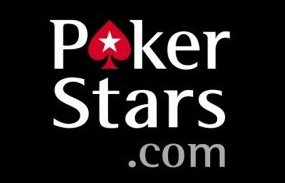California Online Poker Bill Passes Through Committee

 Don’t break out the bubbly just yet, but Monday was a momentous day for United States online poker, as California’s Assembly Governmental Organization Committee unanimously passed a pro-online poker bill, moving it to the floor of the full Assembly.
Don’t break out the bubbly just yet, but Monday was a momentous day for United States online poker, as California’s Assembly Governmental Organization Committee unanimously passed a pro-online poker bill, moving it to the floor of the full Assembly.
The bill, AB 431, aims to legalize and regulate intrastate online poker in California. Not only did the bill pass out of the committee, but this was actually the first time that an internet poker bill had ever even been voted upon in a committee in the Golden State. Various state legislators and stakeholders have been trying to get online poker going in California for the better part of a decade, but have never gotten much further than bickering about who gets a piece of the pie.
This also means that, even though there are still differences of opinion among stakeholders, some level of agreement has been reached. If the parties were still extremely far apart, AB 431 would likely not have passed through the GO Committee.
AB 431, as it currently stands, is really just a shell bill. As the Legislative Counsel’s Digest reads: “This bill would authorize the operation of an internet poker website within the borders of the state. The bill would require the commission, in consultation with the department, to promulgate regulations for intrastate internet poker. The bill would require those regulations to include, but not be limited to, a licensing process for an individual or entity to become an operator of an internet poker website and rules for the operation of an internet poker website.”
As it says, the bill “would require the commission… to promulgate regulations for intrastate internet poker.” Thus, the bill does not actually detail any of those regulations yet. All it does is say online poker would be legal in California and that regulations as to rules and licensing would need to be developed.
 There has been a great amount of disagreement, particularly among many Native American tribes, on two issues in particular: whether racetracksshould be eligible for online poker licensing and the inclusion of a “bad actor” clause. The latter has been an especially sticky point, as it targets PokerStars, a potentially formidable competitor to the state’s current tribes and cardrooms.
There has been a great amount of disagreement, particularly among many Native American tribes, on two issues in particular: whether racetracksshould be eligible for online poker licensing and the inclusion of a “bad actor” clause. The latter has been an especially sticky point, as it targets PokerStars, a potentially formidable competitor to the state’s current tribes and cardrooms.
Some tribes and coalitions want PokerStars excluded, claiming the poker room was a “bad actor” in offering online poker to US residents after the UIGEA was passed in 2006, while others want the state’s gambling commission to be able to evaluate every possible licensee.
Though it does seem, with the passage of AB 431 through the GO Committee, that the opposing sides have come closer together, their differing points of views can be seen in statements that were released after the vote. One group, dubbed the Amaya Coalition, is composed of Amaya Gaming (the parent of PokerStars), the Morongo Band of Mission Indians, the San Manuel Band of Mission Indians, and California’s three largest card clubs: Commerce Casino, Hawaiian Gardens Casino, and Bicycle Casino.
In a statement issued to media outlets, the coalition said, in part, “Our coalition is committed to putting in the time necessary to establish a vibrant, competitive marketplace, one that provides superior consumer protections, requires strict oversight and regulation of operators and licensees, and ensures that the state receives a reasonable return.”
Contrast that to thePechanga Band of Luiseno Indians, which wants a “bad actor” clause in online poker regulation: “We look forward to a meaningful process and arriving at comprehensive legislation that respects California’s longstanding public policy of limited gaming, protects children and the vulnerable, creates jobs, provides additional revenues for the State, and protects consumers and the integrity of the gaming industry from organizations that do not and have not respected US law.”
Visit PocketFives’ California poker community for the latest news and discussion from California players.
Want the latest poker headlines and interviews? Follow PocketFives on Twitterand Like PocketFives on Facebook.




